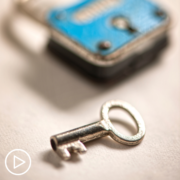What Are Common Issues That CAR T-Cell Therapy Care Partners Face?
What Are Common Issues That CAR T-Cell Therapy Care Partners Face? from Patient Empowerment Network on Vimeo.
CAR T-cell therapy is a long process, but what can care partners expect? Expert Sarah Meissner reviews common issues that care partners face, and Adrienne, a care partner, shares the difficulties that she encountered as well as the lessons she learned that might help ease difficulties for other care partners.
Sarah Meissner, RN, BSN, BMTCN, is a Blood and Marrow Transplant and Related Donor Search Coordinator at the Colorado Blood Cancer Institute. Adrienne is a Care Partner to her husband, who underwent CAR T-cell therapy.
See More from The Care Partner Toolkit: CAR T-Cell Therapy
Related Resources:
Transcript:
Katherine:
Sarah, I wanted to ask you, “What are some of the common issues that care partners face?”
Sarah Meissner:
I think this is a very stressful time here. Your loved one is not feeling well, and there are these potential side effects. And so, that can cause a lot of stress on caregivers that they’re kind of the one in charge. They’re looking for these things. Of course, they want the best for their loved one. So, it can be a very stressful time.
Frequent appointments. Here in Denver, we have terrible traffic. So, if people live far away from the center, it’s fighting rush hour every morning to get here. That can add a lot of stress as well as if you have other things going on at home, too, other family members who need you, it’s a lot to take on.
Katherine:
Adrienne, what experiences or issues did you have in taking care of your husband?
Adrienne:
Well, we do have a child. She was 2 at the time. So, I did have to plan childcare pretty much every day for two weeks, which I am fortunate to have lots of friends and family here in Denver, so I was able to get that covered.
Katherine:
It’s a lot of responsibility for you.
It’s a higher level of responsibility, I guess, right, because you’re taking care of your child and now, your husband is very sick. And you want to make sure that everyone’s needs are being met.
Adrienne:
Right. And driving, like Sarah had said, the driving was an issue, because it was so far for us. There are potholes and with the little bit of change in mood and not feeling well, it was hard for him to be in the car so long and not getting to drive himself. So, I think that was not the best experience. I think if we did it next time, we would try and just be closer to the hospital.
And for me to take care of everybody else, I did make sure that I would try and work out and not being able to leave the house with him. So I work out in the living room just to get some of my own stress out, or I would have somebody come and watch him if I really wanted to go to a class to work out. And like I said before, we were very lucky to have his parents that live in town and then my mother and my sister. So, that’s something that is important to have a network of people to help you because I don’t know, depending on what you have on your plate. I think it would be almost impossible to do it all by yourself, especially if you have to work or you have children to take care of.
So, that’s some advice or what I’ve learned from this experience.
Katherine:
Yeah. Was it hard for you to take time for yourself? Did you feel guilty? I know a lot of people think “Oh, I need to focus all of my attention on my child or my sick spouse.” It can be difficult to say to yourself, “I really need to take half an hour or an hour,” and then, find somebody to help you out with the caregiving.
Adrienne:
Yes. I did find it difficult. And you just know that there is going to be an end in sight. You think, ”If I can just last through the month so I did sacrifice.” But at the same time, my main concern was that my husband would get through this. So, I did feel a little guilty. And I would get a little bit of time.
But me, personally, I just wanted to push through that month and especially that first two weeks. And then, I knew that I would be back to doing the things I love.
Katherine:
Yes. Rather than looking too far forward, I guess it’s trying to get through every day each day. Yeah. I’m going to switch back to ask Sarah a question. Sarah, why is it so important that care partners communicate any issues with their healthcare team?
Sarah Meissner:
So, those side effects that we talked about, there are drugs that we can use to treat them, but they work best when we can get those drugs in as soon as possible. So, if we’re starting to see signs of cytokine release syndrome, we want to get that tocilizumab (Actemra) infused in the patient within two hours.
So, it’s really important that we know that these side effects are popping up so that we can treat it appropriately.













